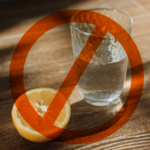VOLUNTARILY STOPPING EATING AND DRINKING (VSED)
“Just as we strive for dignity and purpose throughout our lives, well before the light fades [i.e., before the sun goes down], we can bring this same dignity and purpose to our deaths, as we each journey into our own good night”

Achieving an early exit using Voluntarily Stopping Eating & Drinking (VSED) is simple to state: stop all food and drink, no exceptions.
But it is a bit more complex to carry out.
Take a patient who is not very close to dying, and is still fairly strong. The first few days he or she will be up and around. S/he will likely have conversations, maybe walks, with family members who wish to say goodbye. The patient may pass the time at the computer or playing games with family and visitors. A few have even had a good-bye party.
As the body weakens from lack of nutrition and hydration, the person will sleep more, and may need some assistance moving around. At some point the person will not be strong enough to get out of bed. Next the patient will likely go into a coma. Death follows.
If the patient is already weak at the beginning, for example barely able to get out of bed, then the process is not going to take as long – maybe a few days to a week.
Comfort care is essential throughout the process. There is no pain from the process, but the mouth and lips do get dry. This problem can be treated with special swabs on the lips, inner cheeks and gums. Swabbing can be done with a bit of water provided there is not enough water to swallow; a few medications are available too.
If the patient has pain, as is often the case, or develops pain, palliative care can be continued or started provided the treatment doesn’t include giving the patient food or water, whether by swallowing, feeding tubes, or intravenous infusion.
Is medical care necessary? No, but advisable.
If the patient’s doctor will support VSED, then by all means try to keep the doctor involved.
If the doctor isn’t involved, it is advisable to have some professional help with the care. The easiest way to get help is to obtain it from hospice. Make sure that hospice will support a patient on VSED. More information is in the section on Hospice. Also there are nurses who have training or experience with VSED, and likewise there are doulas (sometimes called death doulas) who know how to perform the necessary comfort care.
You may be thinking about the legal problem of assisting someone to commit suicide. I.e., those attending the patient must continue to withhold food and water after capacity is lost. Surprisingly, this is not a problem. Legal research has not found a case where a family or a caregiver was formally accused of a crime for assisting with VSED. The reason seems to be that the patient initiates the process with her/is own effort, and continues it for days without help. Indeed, VSED is chosen by people with strong wills – no help needed. Others may avoid it because they fear that they don’t have the will power to see it through to the end.
Can one write an advance directive that says to the person’s agent start VSED on me at a given point? This is an interesting issue, discussed under the section on Dementia.
In recent years, VSED has received a lot of attention. PBS’s Diane Rehm’s husband died from VSED. Phyllis Shacter’s husband did also, and she has been an advocate ever since. The national organization, Compassion and Choices, promotes it. In 2021 Oxford University Press published a treatise entitled, not surprisingly, Voluntarily Stopping Eating and Drinking. It is subtitled A Compassionate, Widely Available Option for Hastening Death, and is edited by distinguished leaders in the fields of medicine, philosophy and law.